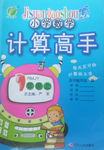题目内容
We can become a smart shopper by choosing for value, not for looks; _______, choose good quality goods with plain packages.
A. in particular B. in other words
C. in addition D. in any case
B
【解析】
试题分析:考查词义辨析。A.尤其,特别是;B.换句话说;C.另外;D.无论如何;句意:我们可以通过选择价值,而不是外表而成为一个聪明的购物者;换句话说,选择普通包裹而质量好的商品。根据句意,故选B。
考点:考查词义辨析。

练习册系列答案
 计算高手系列答案
计算高手系列答案
相关题目